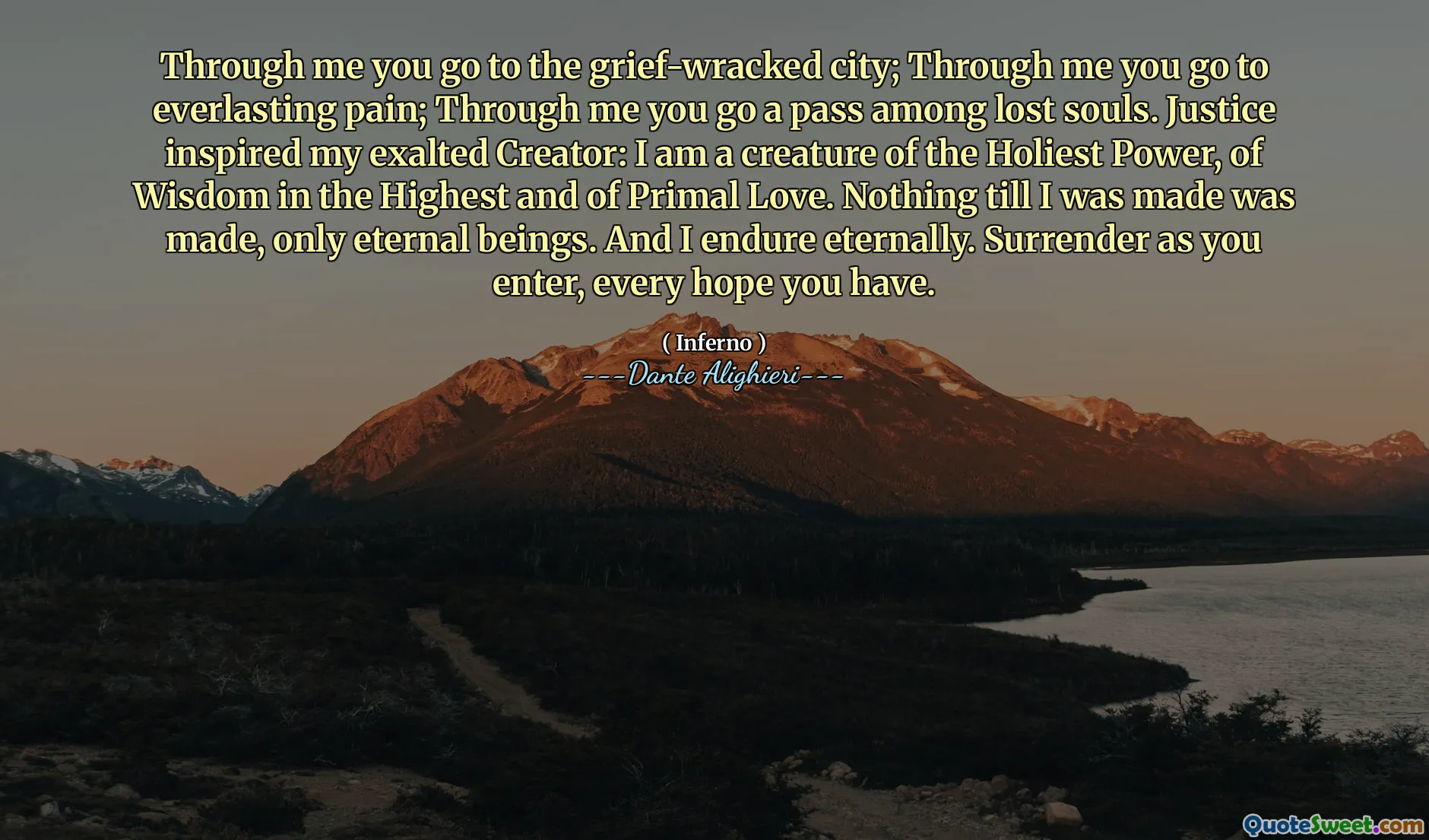
Through me you go to the grief-wracked city; Through me you go to everlasting pain; Through me you go a pass among lost souls. Justice inspired my exalted Creator: I am a creature of the Holiest Power, of Wisdom in the Highest and of Primal Love. Nothing till I was made was made, only eternal beings. And I endure eternally. Surrender as you enter, every hope you have.
This profound passage, extracted from Dante's 'Inferno,' invites contemplation on the nature of justice, punishment, and the divine order. The speaker—likely representing the gate of Hell—paints a vivid picture of a journey into a realm defined by eternal pain and loss. The imagery of a "grief-wracked city" and "lost souls" evokes a landscape not just of physical torment but of spiritual desolation. The assertion that justice inspired the Creator reflects Dante's theological view that divine justice is the foundation of all existence, emphasizing that what lies beyond is a manifestation of divine will. The phrase "Nothing till I was made was made," underscores the notion of a divine order where only eternal, divine beings existed before creation, setting a hierarchy of immortality and purpose. The emphasis on endurance suggests the permanence of divine justice and the eternal consequences of the soul's choices. The command to surrender and abandon hope resonates deeply, serving as a stark reminder of the finality and severity of divine justice and the importance of moral steadfastness. This narrative challenges the reader to reflect on the justice of divine law and the significance of hope and morality in life. It also highlights the human struggle with understanding divine will, and the need for humility before an omnipotent, infinite power. Dante uses this divine perspective to evoke awe, fear, and reverence, making us question our own moral compass and the eternal consequences of our actions.





